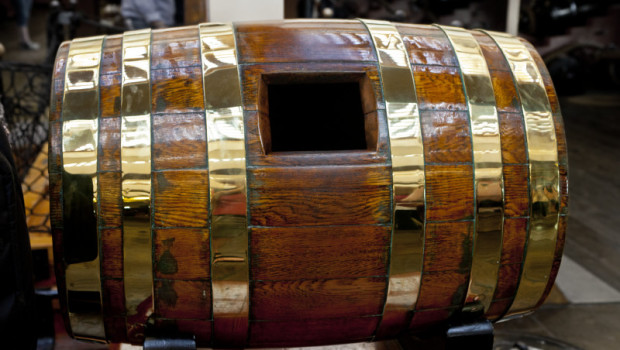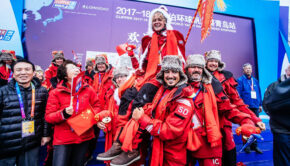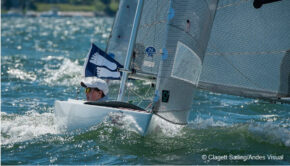Keeping nautical expressions afloat
Published on March 4th, 2014
by Claudine Dervaes, Ocala StarBanner
It’s pretty clear how expressions such as “run a tight ship,” “hit the deck,” “take the wind out of your sails,” “keel over” and “batten down the hatches” came about. But how did “cup of joe” originate?
It supposedly dates back to Secretary of the Navy Josephus Daniels, who in 1914 banned alcoholic beverages on navy ships. The strongest drink became coffee, and a “cup of Josephus” was shortened to a “cup of joe.”
What about “shake a leg?” One theory is when wives were at sea with their husbands, they didn’t have to get up as early as the men. “Shake a leg” was announced, and women would swing their legs out to reveal they were not men.
Because sailing vessels relied on winds, it was hot and boring to travel through the area of calm near the equator called the doldrums – thus the expression for being emotionally down. Going the “whole nine yards”? This comes from the fact that large sailing ships had three sails with three yards on each mast; so all sails unfurled would mean all nine yards.
The cat o’ nine tails (a multi-tailed whip used for punishment) was stored in a bag. So the “cat is out of the bag,” meant someone was getting punished (the secret is out). Since all hands were called on deck to witness the flogging, it would be so crowded that the whip couldn’t be swung with full force. Therefore, there was no room to “swing a cat.”
On ships, a scuttled butt was used for drinking water, and since sailors conversed when gathered for a drink, scuttlebutt became slang for gossip/rumors.
Posh has come to mean elegant or stylish, but P.O.S.H. stood for “Port Outward, Starboard Home,” referring to wealthy passengers traveling from Britain to India having cabins on the shady side of the ship. – Read on








 We’ll keep your information safe.
We’ll keep your information safe.